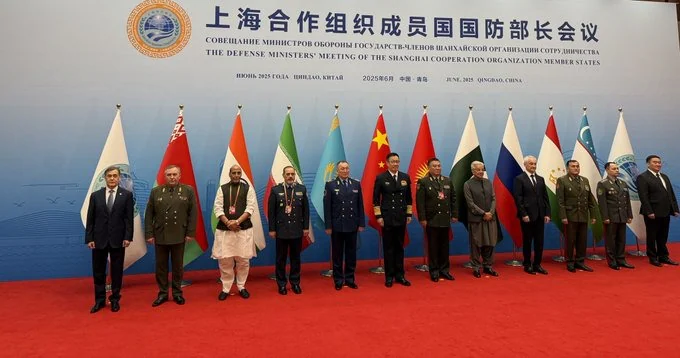In a bold diplomatic move, Defence Minister Rajnath Singh has refused to sign the joint statement at the Shanghai Cooperation Organisation (SCO) Defence Ministers’ meeting held in Qingdao, China. The reason: the statement failed to acknowledge the recent Pahalgam terror attack that left 26 innocent lives lost, a glaring omission that India sees as a denial of its serious concerns on terrorism.
What further sparked India’s objection was the inclusion of references to Balochistan in the document—an indirect accusation towards India of fomenting unrest in Pakistan’s restive province. Notably, Pahalgam’s exclusion is suspected to have been influenced by Pakistan, with China—its close ally and current SCO chair—presiding over the session.
India has consistently and firmly rejected Pakistan’s allegations regarding Balochistan, urging Islamabad to introspect and cease its support for terrorism instead of casting baseless accusations.
“The language of the joint declaration was unacceptable. There was no mention of the Pahalgam terror attack, but incidents in Pakistan were highlighted. Therefore, India refused to endorse the joint statement, and no final communique was released,” a senior Defence Ministry official confirmed.
Rajnath Singh was present at the summit alongside representatives from other SCO member states, including Russia, China, Pakistan, and Central Asian nations. Founded in 2001, the SCO comprises 10 members—India, China, Russia, Pakistan, Iran, Kazakhstan, Kyrgyzstan, Tajikistan, Uzbekistan, and Belarus—with a mission to bolster regional security and cooperation.
During his address, Singh delivered a firm call for unity against terrorism. He emphasized that the region’s biggest threats stem from radicalisation, extremism, and terrorism—all of which contribute to widespread insecurity and a growing trust deficit.
“Peace and prosperity cannot go hand in hand with terrorism or the proliferation of Weapons of Mass Destruction among non-state actors. We must act decisively. Nations that sponsor and harbor terrorism for their own strategic objectives must be held accountable. There should be no tolerance for double standards,” he stated, delivering an indirect yet unmistakable message to Pakistan.
Singh referenced the Pahalgam attack in detail, noting that victims were targeted based on religious profiling. The Resistance Front—a proxy of the UN-designated terror group Lashkar-e-Taiba—claimed responsibility for the attack. He said the attack bore hallmarks of Lashkar’s previous operations in India.
“India has demonstrated its zero tolerance for terrorism through decisive actions. We reserve the right to defend our people and pre-empt further attacks. The epicentres of terrorism are no longer untouchable. We will strike when necessary,” Singh warned.
He further called for collective international accountability for those who fund, plan, and execute terror attacks, insisting that all acts of terrorism are criminal and indefensible, regardless of motive.
India’s refusal to sign the joint statement is not merely symbolic—it echoes a broader strategic stance in the aftermath of Operation Sindoor, India’s recent counter-terror offensive. Following the operation, eight diplomatic delegations were dispatched globally to explain New Delhi’s counter-terror doctrine and reaffirm its position on holding terror sponsors accountable.
By taking a strong stand at the SCO forum, India has reaffirmed its unwavering commitment to fighting terrorism and ensuring that regional cooperation does not come at the cost of national security or global silence on acts of terror.



